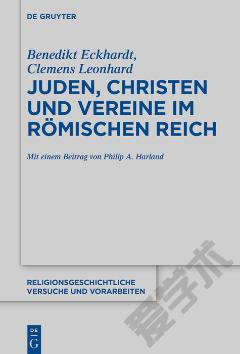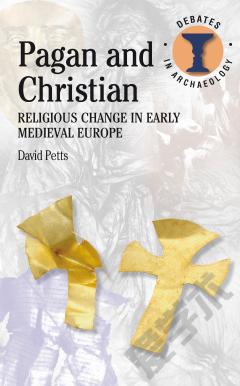Jews and Christians
Jews and Christians in Contact and Controversy, by William Horbury. Edinburgh: T & T Clark, 1998. Pp. 342. $54.95. Dr. Horbury is a Reader in Jewish and Early Christian Studies at the University of Cambridge. This work is a collection of twelve of his articles published in England and Europe during the period 1972-1998. The final three essays treat late medieval (fourteenth to seventeenth century) European Jewish polemical works and so are not of particular interest to readers of this journal, but they do illustrate both Horbury's extraordinary range of interest and his virtuoso command of the details of the sources. The volume is introduced by a forty-page essay bringing the various issues discussedincluding the benediction of the Minim, Jewish and Christian polemic in antiquity, Jews and Christians on the Bible, and early Christians on synagogue prayer and imprecation-up to date, responding to articles and books of the past two decades, and adding to the very useful bibliography. The book also has thirty pages of indices of primary sources, authors, and subjects. This is a book written by a specialist for other scholars. Horbury does not bother to lay out the basics of the field; even in his introduction his prose is often dense and technical; and his arguments occasionally read like extended footnotes. For the scholar of Jewish-Christian interactions during the first six centuries or so, however, Horbury cuts straight to the heart of the issues being discussed and debated in the field. He is thorough, thoughtful, and deeply considerate. Which is not to say that Horbury takes the middle of the road in scholarly opinion. Horbury's views are uniquely his own, at times at odds with the consensus in the field. Further, if perhaps obviously, Horbury's point of view is consistently Christian. I suppose this subjectivity cannot be helped since he served as Dean of Corpus Christi College. But he asks questions that have their point of view in the NT and the fathers, questions that lead to answers that may not adequately address the Jewish literature he considers. This is particularly the case in those chapters of the book where he addresses Jewish imprecation of Christians. By presuming an in/out dichotomy, Horbury replicates an error of perception often imposed on Jewish sources by modern Christian authors (notably also by E. P. Sanders in his justly celebrated Paul and Palestinian Judaism). This Christian Weltanschauung pervades not only Horbury's treatment of the rabbinic birkat haminim but also his exposition of the separation of Christians from Jews (which to this Jewish reviewer's mind is a very different subject). While Horbury does recognize that Jews will necessarily perceive the split differently, he nevertheless presumes that the matter must be viewed as Auseinandersetzung. Horbury is also focused on the "Great Church" to the near exclusion of nonRoman forms of Christianity. He does acknowledge the need for more work in Syriac church writings, especially in comparison with Jewish (Aramaic) literature. But even when acknowledging the linguistic affinities of Aramaic church and synagogue, he downplays the role of Hebrew and elevates the role of Greek as the language of Jewish and Christian interaction. Horbury may well be correct, for the Jews most likely were hellenophones; but his argument is ex silencio, and the extant literature of the Jewish community is decidedly in Hebrew and Aramaic. Ironically, this raises another methodological problem in Horbury's work, one that is increasingly recognized on this side of the Atlantic. This is the vast divergence of the Judaisms of late antiquity. Now it is true that the literature at our disposal is the Hebrew and Aramaic corpus of the rabbis. But if Horbury can argue for a nonrabbinic Greek literature, he should also argue for a nonrabbinic Jewish community alongside the rabbinic. â¦
{{comment.content}}








 京公网安备 11010802027623号
京公网安备 11010802027623号